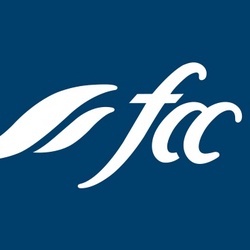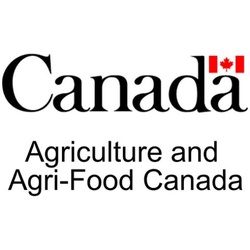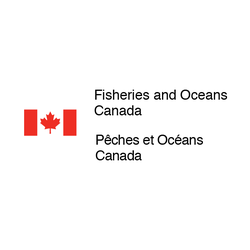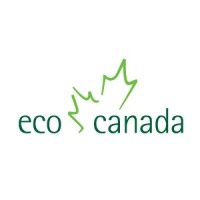
EI fishing benefits
At a glance
- No Condition
- Open Date : May 26, 2020
- Agriculture, forestry, fishing and hunting
- Canada
- Sole proprietorship
- $ 2,500 minimum revenue
- All organization sizes
- Canadians
Overview
If you are a self-employed fish harvester or a sharesperson looking for work, you could access EI benefits on the basis of insurable earnings from previous seasons.
Activities funded
The EI fishing benefits program in Canada supports various activities for self-employed fishers who experience periods of low income. These benefits are designed to assist fishers through financial aid and caregiving support during critical life events.
- Provision of regular fishing benefits to self-employed fishers based on their earnings.
- Support for fishers unable to work due to sickness through sickness benefits.
- Financial assistance through maternity benefits for expecting or new mothers.
- Parental benefits to support fishers caring for newborns or newly adopted children.
- Compassionate care benefits for fishers providing care to a seriously ill family member.
- Family caregiver benefits for fishers who care for critically ill or injured children or adults.
Eligibility
Eligibility for EI fishing benefits requires meeting certain income and employment-related criteria specific to self-employed fishers in Canada.
- The applicant must be a self-employed fisher actively seeking work.
- Eligibility is based on earnings from self-employment in fishing, not insurable hours of employment.
- The applicant must have earned a minimum amount during the qualifying period, which varies based on the regional unemployment rate. This ranges from $2,500 to $4,200.
- The qualifying period for benefit calculations cannot begin earlier than the week of March 1 for summer fishing or the week of September 1 for winter fishing, and it cannot start more than 31 weeks before the start of the benefit period.
- To qualify for EI special benefits (sickness, maternity, parental, and caregiving), the applicant must earn $3,760 or more during the qualifying period.
- If previously penalized for a false statement or misrepresentation, the applicant may need to earn more to qualify.
- Applicants need to provide records of income, details of work history, and other personal and employment-related information when applying.
Who is eligible?
The Employment Insurance (EI) fishing benefits program is designed for self-employed fishers who are actively seeking work. Fishers' eligibility is determined by their earnings from self-employment in fishing during their defined qualifying periods. It is essential for these self-employed individuals to earn a specified minimum income based on the unemployment rate in their region to qualify for regular fishing benefits or special benefits such as sickness, maternity, parental, compassionate care, and family caregiver benefits.
Who is not eligible
This benefit is specifically tailored for self-employed fishers actively seeking work, thus narrowing eligibility by the nature of employment. Companies or industries outside this sector do not qualify for these benefits.
- Businesses not involved in self-employed fishing activities.
- Industries unrelated to fishing seeking regular employment insurance benefits.
Eligible expenses
The Employment Insurance (EI) fishing benefits aim to support self-employed fishers who are actively seeking work while also being eligible for various special benefits. The activities eligible for this grant revolve primarily around fishing-related earnings and caregiving responsibilities.
- Seeking work actively as a self-employed fisher.
- Self-employed fishing activities that meet the earnings criteria during the qualifying period.
- Caregiving activities for family members with serious medical conditions under compassionate care benefits.
- Providing care for a critically ill child or adult family member under family caregiver benefits.
- Taking maternity or parental leave to care for a newborn or newly adopted child.
- Temporarily stopping fishing activities due to medical reasons and claiming sickness benefits.
Eligible geographic areas
This employment insurance program applies to self-employed fishers in Canada. Eligibility is determined by regional unemployment rates but does not specify particular eligible geographical areas beyond national application.
Selection criteria
Evaluation and selection criteria for the EI fishing benefits grant: - Qualifying as a self-employed fisher actively seeking work - Eligibility based on earnings, not insurable hours of employment - Ability to receive regular fishing benefits as well as other related benefits such as sickness, maternity, parental, compassionate care, and family caregiver benefits
How to apply
Gather Required Information
- Ensure you have your social insurance number (SIN).
- If your SIN starts with a "9," obtain proof of your immigration status and work permit.
- Prepare your date of birth and your parent's last name at birth.
- List your mailing and residential addresses, including postal codes.
- Collect the names and addresses of all buyers of your catch and any employers over the last 52 weeks.
- Record dates for periods of self-employed fishing and other employment.
- Document reasons for separation from any employment in the past 52 weeks.
- Have your complete banking information ready, including your financial institution name, branch number, and account number.
Complete the Online Application
- Submit your Employment Insurance (EI) application online.
- Begin the application process and make sure to save your temporary password if you plan to return to it later. Your application will be saved for 72 hours.
Finalize and Submit Application
- Ensure all required fields are completed within the online application.
- Review your application for accuracy before submission.
- Submit the application no later than 4 weeks after your last day of work, the end date of your fishing trip, or the date you sold your catch.
Confirmation and Next Steps
- Receive confirmation of submission, noting the application reference number.
- Check your email for any follow-up communications.
Additional information
Here are additional relevant details for the EI fishing benefits:
- The qualifying period can be impacted if an application was previously approved within the last 31 weeks.
- The family supplement is available and can increase the benefit rate up to 80% of average insurable earnings for low income families.
- Benefits from this program are taxable and federal as well as provincial or territorial taxes will be deducted from payments.
- The maximum duration for receiving fishing benefits is 26 weeks within a 37-38 week benefit period, but this can extend up to 52 weeks if claiming special benefits such as sickness benefits.
- Application must be done no later than four weeks after the last day of work, the end date of the fishing trip, or the date of selling the catch to a buyer.
- The application process online takes approximately one hour, and information is saved for only 72 hours if not completed.
- Employers are required to issue records of employment (ROEs) for past and recent jobs, viewable on My Service Canada Account, to aid in determining eligibility and the amount of benefits.
Frequently Asked Questions about the EI fishing benefits Program
What is the EI fishing benefits?
Who is eligible for the EI fishing benefits program?
What expenses are eligible under EI fishing benefits?
Who can I contact for more information about the EI fishing benefits?
Where is the EI fishing benefits available?
Who are the financial supporters of the EI fishing benefits?
More programs like this

Farm Equipment Financing
Farm Credit Canada (FCC)
AgriAssurance Program – National Industry Association Component
Agriculture and Agri-Food Canada (AAFC)
AgriInnovate Program
Agriculture and Agri-Food Canada (AAFC)
Canada Nature Fund for Aquatic Species at Risk (CNFASAR)
Fisheries and Oceans Canada (DFO)
ECO Canada — Youth Employment in Natural Resources YNR
ECO Canada
Small Craft Harbours Abandoned and Wrecked Vessels Removal Program
Fisheries and Oceans Canada (DFO)
Northern Integrated Commercial Fisheries Initiative (NICFI) - Expansion and Diversification
Fisheries and Oceans Canada (DFO)
Aboriginal Funds For Species At Risk (AFSAR)
Fisheries and Oceans Canada (DFO)
Northern Integrated Commercial Fisheries Initiative (NICFI) - Harvester Training
Fisheries and Oceans Canada (DFO)